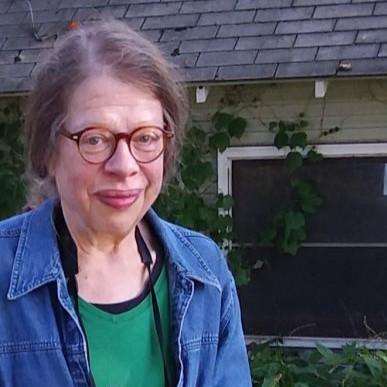Marianne Boruch
IAS Q&A
When you arrived at the Institute you probably had a concrete idea or plan of what you would like to achieve during your stay. Were you able to pursue these plans? Did there emerge new, unforeseen directions?
More generally speaking, who or what influenced and inspired your career the most?
What would you say is the most particular about your literature?
How do you see the world of literature today? How is it evolving?
What’s next for you after IAS CEU Budapest (if we may ask)?
If there were one book or film you could recommend to the reader, what would be that and why?
For starters, it was like opening a mysterious, most wonderful gift: to arrive in this city I’d never seen, to IAS and the Guesthouse named to honor Raoul Wallenberg. How could this miracle be happening to us? My husband and I will be forever grateful.
As these things often are, my work plan was more wish than ironclad agenda. Which is to say, to see what might happen if I wandered about the Roman ruins in Budapest, in the ancient city of Aquincum, the most northeast outpost of the Empire. I wanted to be on site, closely observing in order to write poems that could come of it, perhaps even an essay.
And exactly what would fall into my begging bowl? My first ambition as a kid was to be an archaeologist—I’d been obsessed—but instead I’d become a poet and writer and university teacher. So the thrilling chance to be there, to see actual ruins of the ancient world and talk to working archaeologists (remember I am an American, from a relatively new and upstart country) hit me hard since to predict and imagine on an application is one thing but living in the first and second century in a haunted beautiful city is quite another. And given the richness of Budapest--ancient, medieval, and modern by turns—other things entered the long poem I was writing. My creative practice (as one calls it now) is to have patience and go empty enough to welcome what might come regardless of whatever I might claim and promise in advance. The fellowship enabled me to do that in new ways, that poem being the longest piece I’d written, with a wider range, with surprises everywhere.
What influenced me the most? The light in Budapest. The winter light. A way to engage the timelessness so vital to poems, in particular the one I kept writing and revising there--minus the semi-constant distractions at home an ocean and half of two continents away. Working on the poem grew so intense that at times it seemed impossible to know where its lines and images ended and where I began. Everything undid me. The genuine freedom offered by the Institute aided and abetted that.
If I had to categorize my work (besides coming from that doomed but not particularly unhappy group— “fallen away” Catholics), I guess I could say I’m a confirmed imagist; I trust the hard image to go first, then the invisible, more abstract, larger moments—if I’m lucky—might follow (weirdly enough) almost wordlessly. I like to say we poets are basically plumbers and carpenters who build a fragile but solid structure and can only hope that meaning is drawn up through it. This is what I was doing at the Guesthouse in Budapest where I felt Wallenberg’s generous brave eye upon me as I worked hours every day at the kitchen table, on my laptop. Exhausting and rewarding! A lost world found, howbeit in ruins.
I know people speak of writing as a career, but honestly, I have never thought of poetry as such. It’s more a state of mind, a secret life that somehow goes public, bit by bit. I think my writing process might feel familiar to many poets around the world. But this century’s work seems to differ from that of the past: more urgent politically and certainly climate-stricken now (no doubt by necessity, to save ourselves), more diverse and open to what really is and its dangers.
Right now, I am proofing a book (The Figure Going Imaginary) that will be out next March, 2025 from my press, Copper Canyon, the first in their new prose series about poetry. I see it as a memoir that tracks my preparation—through journal entries, notes, early drafts—behind the poems in my 8th collection of poems, Cadaver, Speak, when for a semester through a “Faculty Fellowship in the Study of a Second Discipline” I attended a Life Drawing course in the College of Visual and Performing Arts, and also the Gross Human Anatomy class in the medical school on the Purdue campus where I taught in the English Department for thirty-plus years before going rogue and emerita. I also continue to write new poems and hope to finish a book of stories that completely took me by surprise during the pandemic lockdown.
As for reading suggestions—well, so many! But lately (and maybe as a pause, an overview, a relief) I’ve been thinking about a small very curious collection of tiny stories I still love called The Language of Cats by Spencer Holst: unpredictable, quietly hilarious, and moving. Poet Allen Ginsberg called him “a stand-up tragic.” I discovered that book in my 20s quite by accident. I no longer know where. It gave me hope.
(For the request of the author, her answer is published in one piece instead of the usual format of the IAS Q&A)

